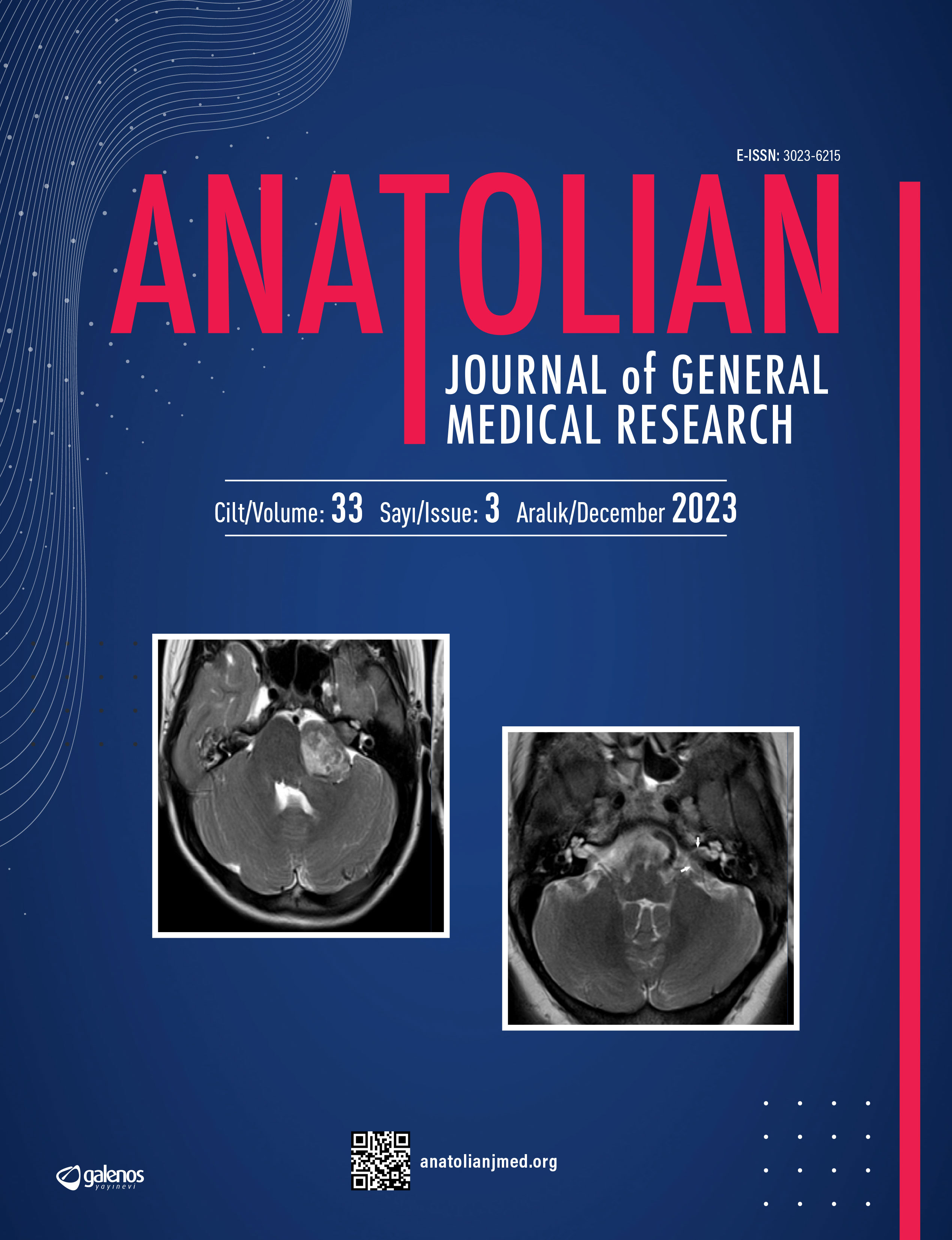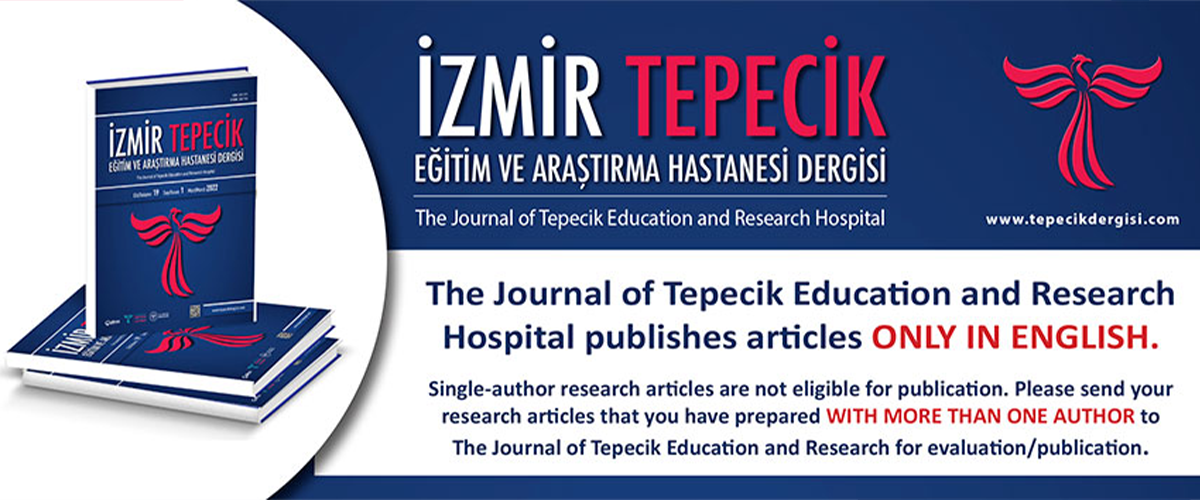








The Effect of Chemotherapy on Quality of Life of the Patients with Metastatic Gastric and Colorectal Cancer
Selda Çakın Ünnü1, Ilkay Tugba Unek2, Ömercan Topaloğlu31Health Science University, Umraniye Training And Research Hospital, Department Of Internal Medicine, Istanbul.2Dokuz Eylul University Faculty Of Medicine, Department Of Internal Medicine, Division Of Medical Oncology, Izmir.
3Derince Training And Research Hospital, Department Of Internal Medicine, Division Of Endocrinology, Kocaeli.
Objective: The self-administered questionnaires by the patients are among the most important methods to evaluate the patient’s health related quality of life. The objective of the study was to evaluate the effect of chemotherapy on quality of life of the patients receiving palliative chemotherapy with the diagnosis of metastatic gastric and colorectal cancer by using EORTC QLQ-C30.
Methods: This study included 100 patients who were treated with palliative chemotherapy for the diagnosis of metastatic gastric or colorectal cancer in İzmir Tepecik Education and Research Hospital Department of Medical Oncology between 2011-2012. The EORTC QLQ-C30 questionnaire was filled twice by the patients before chemoterapy started and after chemotherapy completed.
Results: When the two questionnaires were compared, it was found that global health status and physical functioning did not change after the chemotherapy. Role functioning, cognitive functioning, and social functioning impaired but emotional functioning improved (p<0.05). After the chemoterapy, scores of fatigue and constipation decreased but financial difficulties increased (p<0.05). The symptom scores of nausea-vomitting, pain, dyspnea, insomnia, anorexia, diarrhea did not change.
Conclusion: The results of this study suggested that a quality of life assessment with the EORTC QLQ-C30 questionnaire would be beneficial in patients with metastatic gastric and colorectal cancer. In this way, impairments in functional scores, global health status and symptom scores that may occur after chemotherapy can be detected, clinicians can be helped to decide on the switch to chemotherapy regimens that are similar in effectiveness but have different side effects profile, the patients’ quality of life can be improved as a result of the application of the necessary palliative treatments.
Metastatik Mide ve Kolorektal Kanserli Hastalarda Kemoterapinin Yaşam Kalitesi Üzerine Etkisi
Selda Çakın Ünnü1, Ilkay Tugba Unek2, Ömercan Topaloğlu31Sağlık Bilimleri Üniversitesi, Ümraniye Eğitim Ve Araştırma Hastanesi, İç Hastalıkları Anabilim Dalı, İstanbul.2Dokuz Eylül Üniversitesi Tıp Fakültesi, İç Hastalıkları Anabilim Dalı, Tıbbi Onkoloji Bilim Dalı, İzmi̇r.
3Derince Eğitim Ve Araştırma Hastanesi, İç Hastalıkları Anabilim Dalı, Endokrinoloji Bilim Dalı, Kocaeli̇
Amaç: Hastaların kendi kendine uyguladığı anketler, sağlıkla ilişkili yaşam kalitelerini değerlendiren en önemli yöntemler arasındadır. Bu araştırmamızda, metastatik mide ve kolorektal kanser tanısıyla palyatif kemoterapi alan hastalarda, kemoterapinin yaşam kalitesine olan etkisinin EORTC QLQ-C30 anketi ile değerlendirilmesi amaçlandı.
Yöntem: 2011-2012 yılları arasında İzmir Tepecik Eğitim ve Araştırma Hastanesi Tıbbi Onkoloji Bölümünde metastatik mide veya kolorektal kanser tanısı ile palyatif kemoterapi almakta olan 100 hasta çalışmaya alındı. EORTC QLQ-C30 anketi, kemoterapi başlamadan önce ve kemoterapi tamamlandıktan sonra olmak üzere hastalar tarafından iki kez dolduruldu.
Bulgular: Yapılan iki anket karşılaştırıldığında, kemoterapi sonrası genel sağlık durumunun ve fiziksel fonksiyonun değişmediği saptandı. Uğraş fonksiyonun, bilişsel fonksiyonun ve sosyal fonksiyonun kötüleştiği, duygusal fonksiyonun ise iyileştiği saptandı (p<0,05). Kabızlık ve yorgunluk semptom skorlarının kemoterapi sonrası azaldığı, mali zorlukların ise arttığı saptandı (p<0,05). Bulantı-kusma, ağrı, nefes darlığı, uykusuzluk, iştahsızlık ve ishal semptom skorlarında bir değişiklik görülmedi.
Sonuç: Bu çalışma sonuçları, metastatik mide ve kolorektal kanserli hastalarda, EORTC QLQ-C30 anketi ile yapılan yaşam kalitesi değerlendirmesinin yararlı olacağını düşündürmüştür. Bu sayede, hastaların fonksiyonel skorunda, genel sağlık durumunda ve semptom skorunda kemoterapi sonrası ortaya çıkabilecek kötüleşmeler saptanabilir, etkinlikte benzer olan ancak yan etki profili farklı olan kemoterapi rejimlerine geçilmesi konusunda klinisyenlerin karar vermesine yardımcı olunabilir ve gerekli palyatif tedavilerin uygulanması sonucunda hastaların yaşam kalitelerinde iyileşme sağlanabilir.
Corresponding Author: Ilkay Tugba Unek, Türkiye
Manuscript Language: Turkish
(1288 downloaded)




